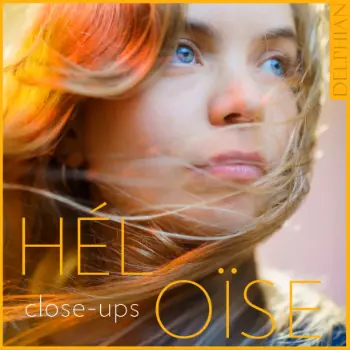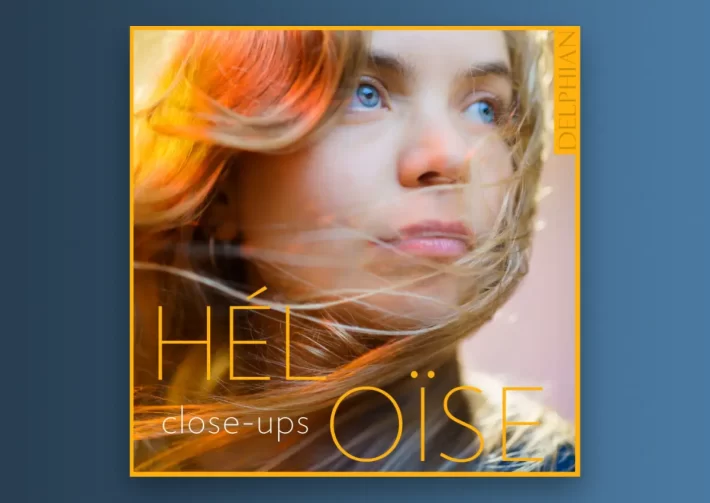Héloïse Werner’s previous album (“Phrases”, which I reviewed here) showcased a refreshing and unique musical personality, both as a composer and as a performer. A glance at the track listing of this new album, titled “Close-Ups”, indicates little deviation, although there is a thematic focus this time on female composers from several eras. Alongside her own output, Werner features songs by Barbara Strozzi, Hildegard von Bingen, and Errollyn Wallen, among others.
The opening selection by Strozzi has a beautiful string accompaniment arrangement by Richard Birchall, which really digs deep into the bass registers: this evokes a tangible and heavy dolefulness that works well with the song’s melancholy. Werner sings quite expressively and with arching legatos, but it’s a pity that the sound balance places far too much emphasis on the strings, despite their sincere playing. The jury is out on whether it’s an issue of the engineering/mic placement or the performance itself, but Werner fights not to be drowned out. Even within the ensemble playing, Strozzi’s intricate counterpoint becomes difficult to hear when all the instruments are at equal volume.
Julie Pinel’s Sombre Lieux (track 4) fares far better and has a very interesting arrangement by Marianne Schofield. A side-by-side listen with a more conventional but lovely rendition by Kajsa Dahlback (on the Alba label) shows how the original has been transformed from wistful and lyrical to menacing and primal: incorporating prevalent dissonances and a grating, shadowy presence in the added interlude, the arrangement leaves us in the middle of the obscure forest referenced in the text. When the tonal material appears later, it somehow feels and sounds different, having experienced such a disorienting harmonic world moments easier. But this experience can only come to light when the execution is mindful and detailed, as we have here.
As for the original works, three Echoes are interspersed throughout the curation, and it’s nice to see that these compositional efforts involve not just Werner, but also her string players. Echo I (track 2) offers insights via a spoken monologue (with clear and precise diction) on how female patients at the end of the 19th century were used to “act out” symptoms of hysteria in a series of lectures by a male neurologist. The frenetic, stringent bowing from the ensemble creates rightful madness and confusion, while the interspersed text is taken from different historical discourses (all by men). But it is the gradual speeding up and layering of these readings—to a point where things become almost unintelligible—that offers the most powerful commentary: the absurdity of the notion that women are at the root of things like hysteria and disease.
Echo 2 (track 6), purely instrumental, offers an eclectic array of sounds and string techniques; here, we get a bit of fiddle playing, rustling on harmonics, and arco that all seem to be vestiges of the frenetic absurdity we heard prior. The final Echo (track 9) might be the most memorable. Perhaps the best way to describe it is as a devolution of conversation into a more guttural language of grunts, squeaks, and squeals. We must admire the enthusiasm with which the performers interpret such perplexing music.
Thoughtful and sincere descriptions accompany each of the songs in the liner notes—these are a must read given the rather unfamiliar territory of the music. Warner and her colleagues have once again successfully pushed the envelope in a memorable set of offerings. Warmly recommended.
Join The Classical Newsletter
Get weekly updates from The Classic Review delivered straight to your inbox.

“Close Ups”
Héloïse Werner – Composer, Soprano, cello

Check offers of this album on Amazon Music.
Album Details |
|
|---|---|
| Album name | Close Ups |
| Label | Delphian |
| Catalogue No. | DCD34312 |
| Amazon Music link | Stream here |
| Apple Music link | Stream here |

















